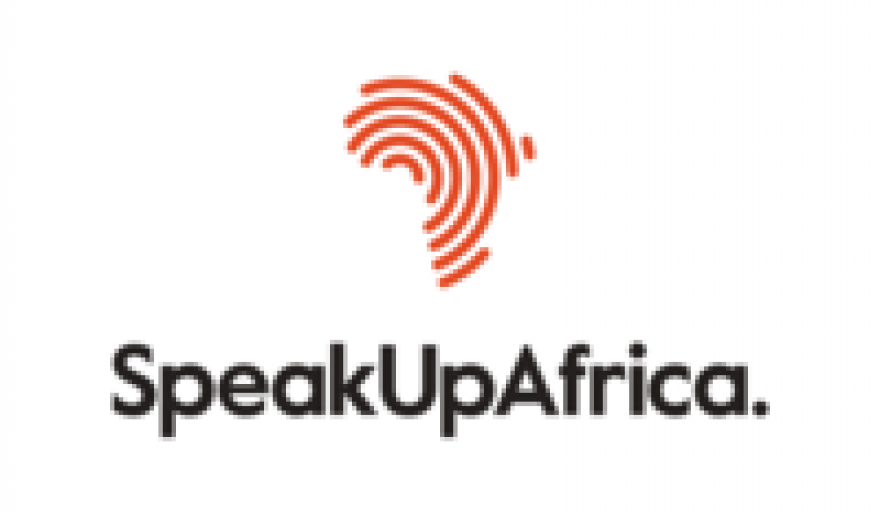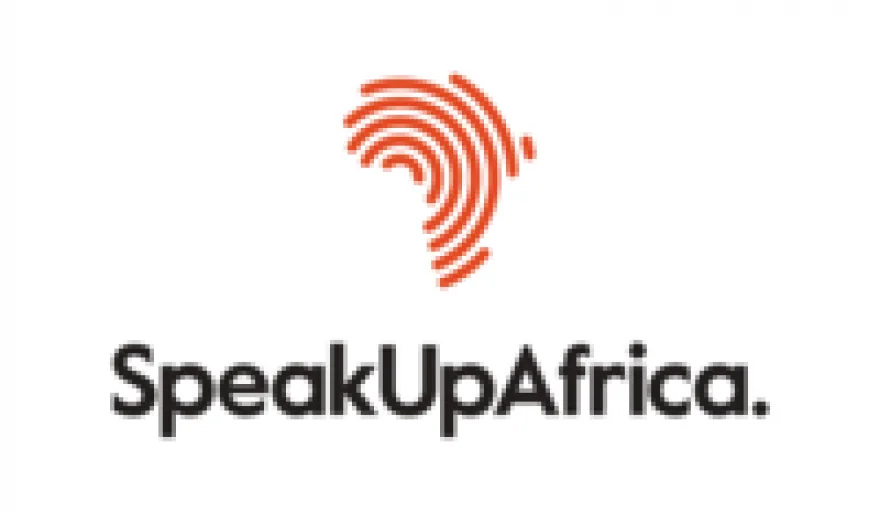
Acclaimed as the blueprint to achieving a better, more sustainable world, the United Nations’ 2030 Sustainable Development Goals (SDGs) have achieved substantial international traction.
And rightly so. Advocating collective action against global challenges, from poverty, inequality and peace to climate change, environmental degradation and health, the UN’s flagship development strategy seeks to leave nobody behind in creating an all-inclusive roadmap for a brighter future.
Initially adopted by its 193 member states, many other non-governmental organisations (NGOs), non-profits and civil society organisations (CSOs) have followed suit. Speak Up Africa (SUA) is one such body, having largely formed the basis of and motivations behind its humanitarian work around the SDG’s central pillars.
“The African continent is faced with many problems that curb development and stop our people from overcoming poverty, ill health and achieving their true potential,” states Yacine Djibo. “This in mind, I founded Speak Up Africa in 2011 with one aim – to discover and implement effective, sustainable solutions to the most challenging problems facing the region’s people.”
A homegrown African solution with its finger on the pulse of critical issues such as malaria, neglected tropical diseases, sanitation and immunisation, SUA has been championing positive change across the continent as a policy and advocacy action tank.
And in the eyes of its Founder and Executive Director, Djibo, the best course of action in meeting these ends is through cooperation, collaboration and coordination.
“Collective action increases attention and investment in the sectors that need it most,” she states. “It is crucial that we listen and share on all fronts so that everyone can take ownership in the achievement of the SDGs and hold governments accountable to their commitments. Similarly, decision makers need to be made aware of the challenges and potential solutions so that they can prioritise.”
Zero Malaria Starts with Me
Working at local, national and international level to increase salience, Speak Up Africa continues to impart knowledge, share tools and develop programmes, inspiring and/or motivating numerous fruitful efforts.
Based in Senegal, the majority of these have come to fruition across Francophone Africa where SUA has adhered to its ‘Advocate. Enable. Engage.’ slogan. And while the organisation’s remit is extensive, spanning everything from education to gender equality to nutrition, Djibo is quick to call upon its role in the Zero Malaria Starts with Me campaign as a particularly influential and impactful initiative.
“This entailed supporting the Ministry of Health and the National Malaria Control Program (NMCP) in Senegal on World Malaria Day in 2014,” she affirms. “We helped to train eight community champions in the peri-urban area of Pikine, financed by Wari, and between 2016 and 2017 these champions raised awareness amongst almost 9,000 people, through 3,840 home visits and 27 community awareness events.
“In the four years following its launch 140 declarations and commitments were signed by national and international opinion leaders, including 50 parliamentarians and 53 mayors in Senegal. Furthermore, private sector engagement saw 14 companies pledge their support to the NMCP during two roundtables.”
Arguably the most notable outcome, however, was the 30 percent fall in malaria cases in Senegal between 2015-16, a fall that was reinforced by SUA and its partners.
“We cannot take all the credit for this,” Djibo admits, “but the increased engagement of political leaders and communities in Senegal over this period certainly contributed to the impressive gains made against the disease.”
These gains have not been unique to Senegal either.
Off the back of these national successes, the African Union Commission and RBM Partnership to End Malaria extended the campaign across the entire continent using the same three core pillars – generating political commitment, mobilising private sector engagement and, crucially, increasing community engagement.
“It has been a very rewarding process to see this rolled out,” Djibo adds. “Just this April, for example, Ghana and Sierra Leone marked World Malaria Day by announcing plans to launch national Zero Malaria Starts with Me campaigns as part of their efforts to step up the fight against the disease.
“With the help of a recent grant from Comic Relief and GlaxoSmithKline, we look forward to working with both countries as they expand their programmes.”
Maintaining momentum
Malaria will not single-handedly form the basis of SUA’s ambitions moving forward, however.
While the organisation will work to boost these strides, ensuring that damaging tropical diseases remain high on the African political agenda, it is also seeking to extend efforts for a sea of other causes.
Djibo reveals: “Another key focus will be the provision of safely managed sanitation services and clean water in more countries across the continent. Working directly alongside municipal bodies, we’re hoping to address national sanitation challenges in tandem with the institutions that are directly responsible for developing and implementing resolutions.
“We will also be campaigning for routine immunisation programmes for children to be rolled out in more countries throughout Francophone Africa. This will require an ongoing dialogue between all sectors to form the foundations of an efficient immunisation strategy, equitable access to life saving vaccines, increased coverage and strong health systems.”
As such, SUA can expect a busy yet rewarding year ahead, set to be characterised by the continuation and acceleration of progress – optimism that Djibo points to in her concluding statements.
“Representing and amplifying African voices across the continent to ensure change is critical, and so we hope to increase the involvement of civil society organisations (CSOs) in the upcoming years,” she says. “CSO groups can lead and organise social action, advocate on priority issues and deliver services to the population.
“Together, we can bolster inclusive, gender sensitive policies and improve governance at both national and regional levels. Together, we can achieve a greater Africa.”






























